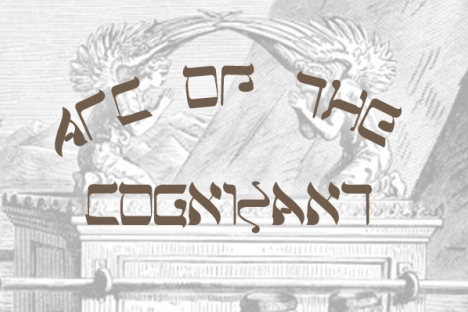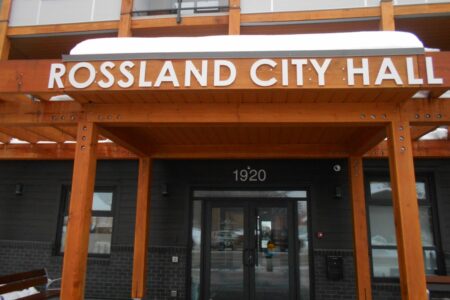Part Two: Multiculturalism and Immigrant Blending (revised)
“First we take Manhattan, then we take Berlin. … I’m guided by a signal in the heavens, I’m guided by the beauty of our weapons.”
— Leonard Cohen, First we take Manhattan
Part Two
In Part One, I outlined my views of Canadian history as it pertains to immigration and multiculturalism, and the fate of indigenous people under Canadian rule. Here I write about imperialism, and my conclusions about what Canada must do now for social justice, and must not do in future immigration policy. I explain why I am a nationalist.
Multiculturalism: consequences of immigrant blending
Has the human world been Westernized? Or has it experienced an amalgamation of various (but not numerous) blending of the legacies of major civilizations? The latter process would be less dominated by European history.
I have argued in Part One of this column that it has mostly undergone a Westernizing process in the politico-social-economic features of Europe’s historical heritage, while also incorporating liberally from other cultures such things as food, fashion, all forms of art, philosophies and religions. The West has triumphed, but not with a conquering-empire methodology. The fading-away of European empires during the Cold War ended the political dominance of “the white man” but did not eliminate those dominant global legacies of our culture I have described above. The West still is best, due to recent history.
But one striking fact stands out to contrast the era when the British, French, German, Belgian, Dutch, Spanish, and Italian empires were at the peaks of their power. (These empires had different lifespans and times of supremacy.) The white man did not allow the peoples of his overseas colonies to enter into the metropolitan homeland of the imperial master race; people of colour were not welcome into the empire’s heart and centre. The few who were allowed came under strict regulation, and no one questioned the injustice of that. White colonists went abroad to take up land and settle in other people’s home territories in the empire, but the subjugated people were not immigrants to the centre. Ethnic and cultural blending at the centre was not wanted.
It is a twentieth-century phenomenon, a post-world-war-two event, that the empire-masters allowed a flow of peoples out of the peripheral colonial and post-colonial lands, into the U. K., France and so forth. Blending immigrants with the imperial people, and the multi-cultural, multi-ethic societies it produced, is a very recent phenomenon. Liberal opinion pronounces this phenomenon a very good thing indeed.
The USA, with its long land border with Latin America, has been the goal of potent streams of immigration from the south; this began even before the twentieth century. Many of those Hispanic/Latin immigrants have stayed, worked, paid taxes, and raised families in the USA, all the while being technically illegal. The American economy absolutely needed these workers, absorbed their productivity, and enjoyed the dynamism of the immigrants.
No one objected to the illegality of tens of thousands of people entering the US for a better life, so long as it seemed to benefit America’s economy. Material progress through economic growth is Americans’ practical religion, blessed by a unique brand of Christianity among this most exceptional people ever to create a homeland of freedom. Now the question of immigrant legality is front and center, American progress is dubious, and America must suffer a long period of readjustment before the conundrum of the rights of “illegals” is resolved.
Imperialism: what is it good for?
Here is an excerpt from a poem universally-reviled now by liberals, an anthem to imperialism written for America by a British poet:
Take up the White Man’s burden
And reap his old reward –
The blame of those ye better,
The hate of those ye guard…
— Rudyard Kipling, The White Man’s Burden (1899)
[Read the entire poem here: http://www.bartleby.com/364/169.html ]
Is imperialism a bad thing? Yuval Harari does not like the argument that says so, for it divides history simplistically into “Good Guys and Bad Guys.”
[View him speaking about unifying humanity at this site: https://www.youtube.com/watch?v=vvwK5PrG21A ]
Harari says there is an “arrow of history” pointing in one direction, that human history has been observably moving on a single path toward the unification of humanity in a global order. He calls that planetary order an “empire” but that is erroneous, a misuse of a word that has value when it is specific rather than generalized beyond its historical meaning.
Empire has, in history rather than theory, been an institution of dominion, for dominance of a metropolis (centre, homeland of the imperial people) over a periphery (hinterland, areas where the imperial people are invaders).
Harari knows how to use “empire” with a sense of historical specificity; he chose not to in order to make his hypothesis about unity fit the present status of global economy, politics, culture, and technology. Harari says critics who say “empires do not work” are wrong; but they are not wrong, in my opinion, when one defines “working” differently from Harari.
Here is Harari in his succinct fashion defending the efficacy of empires: “Empires do not work… the statement is plain nonsense.” He can dismiss the critics of empire because for him, empires succeed when they “rule effectively over large numbers of people.” Harari has decided what is success and what is failure for empires, and then deems them successful by his personal measure.
But what if an empire is working when it works in favour of one minority, the imperial people, and enriches and privileges them disproportionately over the subject peoples? That is how a member of the imperial people would define “an empire that works.” An empire isn’t intended to benefit all its subjects equally.
But Harari defines an empire working well when it has a long span of time in which its boundaries and institutions endure, no matter whether the imperial people have continued to domineer over all other peoples. Harari is pleased to note that imperial peoples will end up submerged into a culture that is a blend of the original imperial people’s culture with the cultures of the subject peoples. The subject peoples usually adopt the language and religious tradition of the imperial people, Harari notes, but the imperial people will, over time, lose their privileged status and clear superiority over the subjects.
In the mind of the original imperial conquerors, the empire has not worked well when the subject people have assimilated with the overlords and a single blended culture prevails in the empire. I feel, as Harari so obviously does, that the multicultural blended nature of an empire after centuries of its existence is a “good thing” – but I would say the empire failed to work as the founders of the empire intended it to work.
This is the “law of unintended consequences” operating in historical change. The master race of empire did not, does not, intend for the subjugated peoples to become as privileged as the masters; a multi-ethnic culture rather than dominion by the imperial culture was not the desired end. The imperial master race is unable to keep itself superior and separate from its subjects, when an empire lasts sufficiently long for the slow, subtle processes of assimilation to work their magic, blending stark differences into unifying harmony.
My conclusion: Harari is wrong to dismiss critics of empire who say empires do not work. In the terms of the empire-builders, empires fail to operate as planned, when the imperial people, the people who live at the centre of the empire and intended to monopolize the advantages, cease to enjoy privileged status. Do I approve of imperial masters planning for their privileges? No.
Harari also makes the typical liberal argument that empires are morally repugnant for their methods and instruments of rule: “The standard imperial toolkit included wars, enslavement, deportation, and genocide.” I will not argue that these are negative effects, (clearly they are immoral), but I will note that in Harari’s view, our ethics and morals are merely fictions and myths we humans invent to create an unreal reality of rules.
Harari’s view is that all our “intersubjective realities” of law, right, and values, are made-up stories, and we can change them at will, as when the French people during the great Revolution rapidly changed their minds about the divine right of kings and believed instead in the sovereignty of the People. This is one of the weakest arguments in his book. As one reviewer noted, Harari is at his most sophomoric when he pronounces that homo sapiens succeeded in dominating all other species by unique cooperation; we cooperate by believing in imagined fictions that have no scientific basis in what is real.
Finally, on the subject of empires, creating a single world as the Arrow of History moves, Harari celebrates what he calls the New Global Empire — which is of course not an “empire” in the way Romans, Chinese, Arabs, Spaniards, nor British would ever have employed that word.
“Since Swedes, Indonesians, and Nigerians deserve the same human rights, wouldn’t it be simpler for a single global government to safeguard them?… Immensely powerful currents of capital, labour, and information turn and shape the world, with a growing disregard for the borders and opinions of states… Throughout the world, more and more entrepreneurs, engineers, experts, scholars, lawyers and managers are called to join the empire. They must ponder whether to answer the imperial call or to remain loyal to their state and their people. More and more choose the empire.”
The world Harari describes is the world he foresees and approves. He is a very clear exemplar of the globalizing liberal. He is numbered among the elites who have been promoting globalization, one of the scholars “called to join the empire” – and his answer is, “Count me in.” He is asked to marry the globalization bride offered as the reward for brilliant talent, and he says, “I do.”
Well, I don’t.
One World, One Humanity, One Love
“C’mon people now, smile on your brother,
Everybody get together —
Try and love one another, right now.
Right now.” — The Youngbloods, Get Together (1967)
I have asserted my identity as a nationalist in a previous column this year. I self-identify as an opponent of the neo-liberal one-world-market project of globalization. I am wary of the elites who push the agenda. I identify with the so-called “losers” in the global bargain of weaker borders and open markets that promise more prosperity and opportunity for people who can take advantage of it. I disagree with those who voted for Brexit or for Trump, but I think sympathy for their perspective is the wise option even for detractors.
There was a reason for the creation of modern nation-states in Europe in the last 150 years, to create modern societies within territorial borders. The nation was an institution for the securing to one People a standard of living, legal order, and cultural uniformity. Are these reasons now obsolete? The liberal or progressive school of thought says, yes, nationalism has been superseded by a better way, internationalism and the brotherhood of humanity.
Pardon me if I demur. That vision is one that suits a particular perspective, for a privileged global elite. Harari, as I have said, is one of the elite.
The elite has tremendous ideological support for its one-world agenda. It is so much more appealing, humanitarian, and compassionate to declare that the world ought to be united ever more closely by institutional bonds. Very large numbers of people by no means among the elites are passionate about the creation of a wonderful global village. But make no mistake, there is a cultural elite, very well-off in financial terms, who push this idealism and ideology among the consuming public. That elite is allied to the ruling classes of capitalism who benefit most from the sort of globalization so far achieved.
The capitalist is a person in complete analogy with the master of empire in the nineteenth-century sense of empire. The imperial master race intended inequality to be the foundation of its empire. Capitalists intend the same. Capitalism cannot exist without inequality, despite liberal humanism extoling equality as an ideal. The cultural elite which legitimizes the capitalist ruling class in the global order of capitalism, is blind to the contradiction of the egalitarian ideal with capitalist economic reality. But “liberty of the individual” – the other keystone of liberal philosophy – is rather easily harmonized with the freedom of capitalists. Freedom to be a capitalist is a fine liberty among others.
This is the crucial truth: capitalist economic logic is the driving engine of the one-world agenda. There are now political, legal, institutional, and cultural instruments operating to maintain humanity in peace and harmony, and I am certainly a standard-bearer for human peace and harmony. But not all means to that end are of equal worth. I do not desire the peace of exhaustion, the harmony of forced hierarchy. As the defeated barbarian leader said, referring to Roman armies’ imperial march across his world, “They create a desert, and call it Pax (peace).” The new global empire Harari wants will be a desert for “losers”.
The present instruments keeping (relative) peace in the world, care most about maintaining global commercial and financial relations among the greatest economic powers; their instruments are tools made to fit one certain notion of order. That order is still capitalist, materialist, and technocratic. If you reject those values and systems, the emerging global order looks somewhat less inviting. Yuval Harari embraces those values (even though they are all “fictions” when properly seen from a strictly scientific point-of-view, he’d say).
Harari’s view into the future projects that humanity will push forward its desires for happiness (bliss), for immortality in our lifespan, for godlike powers over the material and natural world with sciences and technologies. He is nostalgic for the future, as one Christian critic of Harari has astutely noted.
Who would deny the beauty of the idealism of young people wanting a single, sharing human community of equality and freedom and ecological justice? That idealism is not new, and I was once as much a devotee of that utopian vision as any young person now. The 1960’s still enrich my bloodstream, I never gave up wanting the better worlds I dreamed with my peers in universities decades ago. When I hear my daughter’s generation upholding these ideals, I am glad. I will sing along with reggae artists, with any musical lyric that exalts love among all the humans of the planet, and love for other species too. But before those vistas of one love can be practical, capitalism must be retired from its dominance as the norm of our lives. It is a system founded on debt money and perpetual growth, and perverts human consciousness to believe in constant competition in a world of scarcity.
Only a vision at least in harmony with Charles Eisenstein’s sacred economics can bring about a better world, though his blueprint is not the only possible improved world. Something that can approximate that vision is the only hope I am entertaining now; I read many possibilities being put forward today.
Harari and the futurist visions he champions (he calls them techno-humanism and data-ism) are not harmonious with my notion of betterment. He simply has no interest in trying to redirect the tracks into the future, to engineer a train that is not capitalist or submerged in the Story of (Scientific-technological) Progress. That is the “intersubjective reality” he embraces and extols.
Conclusion
Until there is a much more just society in existence in Canada for the people already here, especially our aboriginal people, our homeless population, our impoverished rural and inner-city citizens, I have zero interest in increasing the population of Canada by drastically increasing our rate of legal immigration.
I want to maintain Canada as a nation whose borders mean something for the preservation of a quality of life that will degrade if it is forced to be shared with numbers our present economic reality will not sustain. The butter of affluence and good quality of life we enjoy must not be spread any thinner; by adding more bread to be buttered, increasing our population, we only drive down our probability of social justice. Capitalism creates inequality as a fact of its systemic operations. We could support more people at a high standard but not if we continue to order our lives with capitalist practices. Harari says nothing about ending capitalism, assuming it will continue — and not sad about that.
I am in effect arguing for keeping Canada’s privileged position among the nations of the world by not opening our nation to global levelling. Canadians now enjoy an exceptionally high quality of life.
Yet parts of our society are suffering appalling poverty; Natives lacking drinking water ought to be a source of immense shame for Canadians and fixing that problem ought to be a high priority of any government. I am in effect taking an attitude similar to the attitude of imperial master races of the past, for I want my people, Canadians, to continue to enjoy a standard of material and immaterial quality of life that cannot be spread to all the peoples of the planet under current economic ways.
The Just Society was a slogan of our first P. M. Trudeau. The present Trudeau is a much less-profound thinker than his father. He appears to not have thought through how Canada shares wealth within a capitalist context. He tells Texas oilmen that “no nation on earth would find 173 billion barrels of oil under its territory and not develop that resource.” He tells Canadians he will find the perfect balance between the demands of economy and ecology. But he has no idea of stopping the fossil fuel economy until the profits from it can be wrung out to enrich Canadians within the old paradigm, when in manifest fact the time for that paradigm to be consciously terminated is now.
Trudeau is similarly clueless about an immigration policy congruent with a society of just distribution of wealth and the good things of life. Canada has an exploitative history; forcing the Native people into the place of permanent underclass demands that we make restitution.
Our P.M. appears to have nothing but sentiment to offer as reconciliation when we must demand material recompense for what the Natives have lost due to our economic and political dominion over this land to which we have no justified claim. We owe them money and material; that is how our legal system always adjudicates justice for a wronged party in courtrooms where two parties contend and only one is in the right.
The Natives are in the right. We must pay them.
So, until Canada has a plan to bring up the level of the bottom forty per cent of the population, and bring down the top ten, and create a truly fair social order in the economy, I will not listen to talk of weakening the nation-state power of Canada in favour of a country open to the demands of a globalizing elite.
Oh Canada. Our home on Natives’ land. Clean up our front yard, first.
























